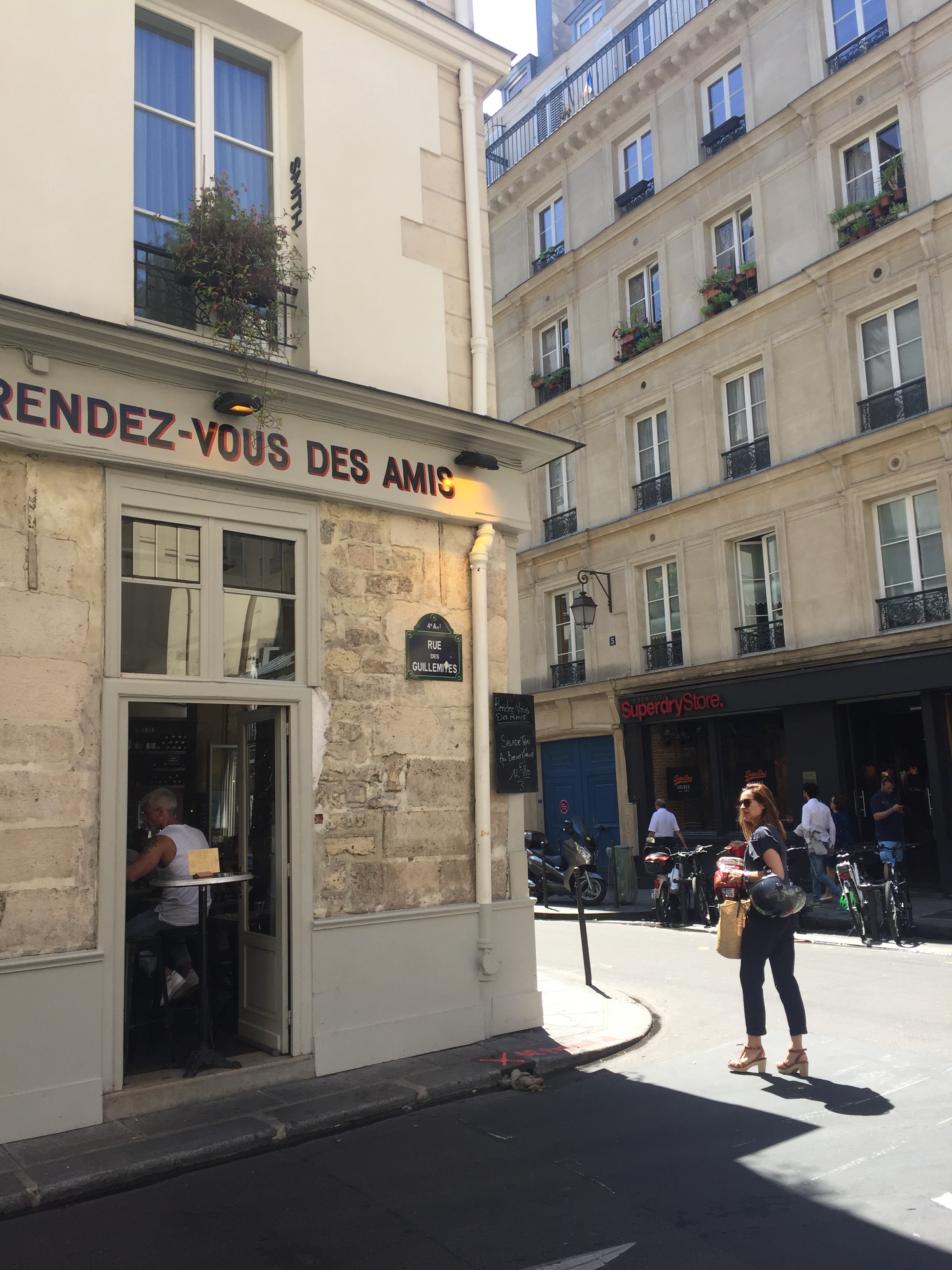French is the fifth most spoken language in the world with more than 320 million people worldwide using the language in their daily lives, mainly Africa, Europe, and North America. Due to the rapidly increasing population in sub-Saharan Africa, French is likely to become the world's most spoken language during the second half of this century.
In today’s global economy, in which the European Union is increasingly important (the second in the world behind China), knowledge of French, when combined with English fluency, offers a powerful advantage to those entering the job market or going on to graduate or professional training. French is the third most requested language in the U.S. labor market, particularly in sectors such as insurance, healthcare, finance, and humanitarian aid.
Why study French?
France is historically the oldest ally of the United States. Since the 1770's, France and the U.S. have forged close, rich and complex relations based on respect, mutual admiration but also—more occasionally—defiance (for example, during the Iraq War). Albeit less hegemonic economically, military, or diplomatically than in the past, France still plays a central role in fields such as culture, fashion, international relations, and scientific innovation.
Ardent proponents of critical thinking, French scientists, artists, explorers, philosophers, and politicians have radically transformed the way the West as a whole envisioned the physical world, society, religion, and justice. Their influence is still highly significant today in many academic fields.
Studying French also means apprehending societies and cultures as rich and diverse as Belgium, sub-Saharan Africa, Maghreb, the Caribbean, Quebec, Madagascar or some regions of Melanesia, given than the French language is the only language spoken officially on the five continents.
Students of French at UCSB learn to master the fundamental skills of speaking, reading, and writing, and acquire a thorough background in the literatures and cultures of the vast French-speaking world, while also developing their critical thinking and analytical capabilities.
Careers in all facets of international business, from marketing and media to banking, law, finance, trade, entertainment, and communications, require a good grasp of at least one foreign language, including French, as do careers in international relations, diplomacy, science, teaching, and the arts. Other career opportunities include translating and interpreting, journalism, publishing, foreign service, civil service, humanitarian aid, international business, international relations, travel and tourism, library sciences, and other international, non-governmental organizations.
French Major (B.A.)
The French major provides intensive training leading to a high degree of proficiency in the French language and a varied curriculum leading to a deep understanding of French history, culture, pop culture, and society. The department offers a variety of courses devoted to the study of major texts from every period of French history and from French-speaking countries around the world. It provides students with a sense of the key role that France has played in world history, as well as its changing place in the modern world. It also offers courses in composition, translation, business French, and advanced grammar that prepare students to succeed in a variety of fields that require strong foreign language skills, intercultural awareness, and the ability to think critically and communicate effectively.
Double Majors
The French major pairs well with other majors. Many of our French majors are double majors in a variety of disciplines, including Business Economics, Communications, Film & Media Studies, and Global Studies. Because our undergraduate French program includes innovative approaches to cross-cultural encounters, our students are prepared to work at the intersections of national and international issues. Moreover, they develop a better awareness of cultural differences through study of the Western European heritage that informs the experience of metropolitan French speakers as well as the Francophone populations within and outside France. Students can access the rich diversity of African, Caribbean, Canadian, Middle Eastern, and Asian communities that elect French as a double major. We also work closely with the Translation Studies program, integrating translation theory and the practice of translation as a literary art into our study of French.
French Minor
The French minor offers students the opportunity to gain oral and written proficiency in the French language while also gaining knowledge of major literary and cultural texts from every period of French history and from French-speaking countries around the world. The minor includes courses in composition, translation, business French, and advanced grammar that prepare students to think critically and communicate effectively.
French Minor Requirement Sheet
Graduate Study
The French Program is fully engaged in a new model of graduate studies called "French in Comparative Literature," leading to the PhD in Comparative Literature with a specialization in French literary studies. "French in Comparative Literature" offers a cutting-edge approach to French literary studies, giving students the means to acquire a strong disciplinary core within a flexible interdisciplinary program of study. Students benefit from rigorous professional training in French and Francophone studies, which prepares them for the national job market. They also tap into the extraordinary variety of graduate humanities seminars offered at UCSB, ensuring that their disciplinary expertise is embedded in a far-reaching interdisciplinary dialogue that may include film and media studies, applied linguistics, art history, translation studies, and many other fields. The Graduate Center for Literary Research also provides a place for intellectual exchange between graduate students in French and other affiliated disciplines in the humanities, hosting distinguished visitors, conferences, workshops, and more.
Since 2005, graduates of our program have gone on to full-time positions at the following institutions: Azusa Pacific University; Centre College; Haverford College; Harvard University; Missouri Southern State University; North Carolina State University; Rice University; Southwestern University; SUNY Brockport; SUNY New Paltz; UC Berkeley; University of Hawai'i; University of Illinois at Urbana-Champaign; University of Miami; University of Mississippi; and West Point.
For more information on graduate programs, please visit the UCSB Comparative Literature website.
French Placement Exams
Students who have previously taken French language courses, or who speak it at home, may request a placement interview or exam, which will help to determine the best level for entering our program. For more information, contact Jean-Michel Ricard at jricard@ucsb.edu.

